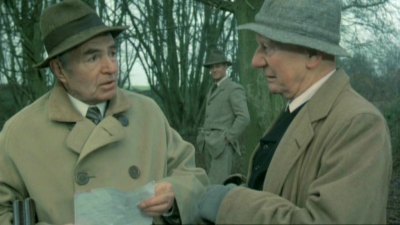Geb. Hapi. Anubis. Khnum. Ra. These are gods. They are not toys or trinkets, plastic figurines or dolls made out of scraps of wool or straw. They are gods. Maat. Aten. Sekhmet. Hathor. Horus. These too are gods. Mighty, imperious gods. Geb is the Great Cackler, Hapi the Father of the Gods, Anubis the Jackal, Khnum the Lord of the Cool Waters, Ra the Sun God, Maat the Goddess of Truth, Aten the Lord of All, Sekhmet the Mighty One, Hathor the Mistress of Heaven and Horus He Who Is Above. Bow down before them for they are powerful deities. While you cower in your ditch, grovelling, they bestride the heavens. Not toys, I say, but gods. Ammut. Isis. Bastet. Nut. Ptah. The devourer, the throne, the tearer, the sky, the opener. Above you the sky is black and fat with stars, for it is night, illimitable and desolate, and you are an uncomprehending mite alone on a burning planet, sprawling in your ditch. They are gods. Aker. Khepri. Sobek. Taurt. Seshat. Seth. Big, towering, potent gods and goddesses. Aker the Double Lion God. Khepri He who comes into existence. Sobek He who causes fertility. Taurt the Great Lady. Seshat, ah Seshat, the Lady of the Library, and Seth the Lord of Upper Egypt. These are the gods. You are not in Upper Egypt, nor in Lower Egypt. You are not in Egypt at all. But wherever your ditch is, in this night as hard as iron, you abase yourself before these gods, because you must. The time for toys and trinkets, for the bauble and the gewgaw, is long past, and you have left all fripperies behind you. Now there is simply you and your gods, locked together, in the face of the stark blank sky. Min. Mut. Osiris. Amun. Nephthys. Neith. The Chief of Heaven, the Lady of Heaven, the King of the Dead, the Hidden One, the Lady of the House and the Great Goddess. Bow down, bow down. You have a forelock. It is there to be tugged, so tug it. Tug it in obeisance to Thoth, the Great Measurer. And to Ra, to Ra, to Ra!
Now plant your brow in the muck on the floor of the ditch and cast your mind back to that golden happy childhood when you plashed in the paddling pool on a sun-blazed summer’s day. The water was cool and delightful, the water in your paddling pool. Did you rush home wrapped in your big yellow towel and worship Khnum? Did you thank Khnum for the coolness of the water? Dried and cooled, did you clutch your library ticket in your tiny hand and scamper excitedly to the public lending library to borrow a book of fairy stories? You would have looked for something with pictures of elves and wizards and peris and hobgoblins, and found a compendium, perhaps, carried it on tippytoe to the issuing desk bathed in the glorious sunshine streaming through those enormous library windows, had it stamped, and borne your borrowed book away, out onto the path in the bright afternoon. When you got home, safe in your bedroom strewn with pillows and cushions and patchwork quilts and throws, did you cry out in gratitude to Seshat?
Mut. Nut. Horus. Seth. Anubis. These are gods. All-powerful and eternal. I can picture you, a few summers later, older but no wiser, traipsing around in the park at lunchtime. You have a bag of breadcrumbs and you intend to cast them upon the grass as food for sparrows and magpies and starlings, for linnets and ravens, for bufflehead ducks and grebes. Sitting on the rusty bench with its rusty plaque in memory of one long dead who sat here often and adored the view, the view of rooftops and chimneys and football fields and allotments, of tennis courts and orchards rich in cherry trees, I see you casting your crumbs to the birds, and I know that you are not giving thanks to Aten or Geb or Sekhmet or Ptah. No. Still at this time, despite your riches and your bravura, your poor head is filled with visions of Itzpapalotl, Coatlicue, Temazcalteci, Tlaloc, Mayahual, Cihuateto, Huixtocihuatl, Popocatepetl and the like, for these are your gods. In the grip of your delusions, it is perhaps not coincidental that you like to sport a yellow polo neck sweater like the one worn by Christopher Lee in The Wicker Man, and even have your hair cut in a similar mop, though you are not yet going grey, and you insist that you have not seen the film, for you profess a devotion to the silent screen. In your pantheon, Abel Gance rubs shoulders with Oxomoco, Lilian Gish with Quetzalcoatl. You have seen Broken Blossoms more than a dozen times, and sometimes you like to pace the back streets of Limehouse as if in search of the opium dens that are no longer there, the dens from which Sherlock Holmes emerged twitching and shattered in The Man With The Twisted Lip. Those fog-enshrouded days are as distant now as the bright summers of your paddling pool youth, yet you cling to your false gods as you feed the birds and ducks in the park, shaded from Nut’s glittering sky by the overhanging branches of sycamores and hazel trees, on the bench by the magnificent iron railings which were replaced after the war in which you were wounded thrice. You were shot in the stomach, burned by flaming barrels, and crushed by falling masonry, but now there is not a scratch on you, and you have forgotten that terrible day in Scheveningen. You were treated well in the field hospital, but what did you do, once you could again use your hands? You scavenged scraps of wood and built a little toy altar and put it on your bedside shelf, praying to Ixtlilton, your god of healing, for having saved you from the realm of Mictlantecuhtle.
So let us spring forward again now, another ten, twenty years, and now your hair is grey, but no longer cut à la Lord Summerisle in The Wicker Man. Your yellow polo neck is threadbare now, and you use it as a dust-cloth. There is much dust in your home, for the air is never still there. Draughts curl in under the doors and around the window frames, for much of the wood is rotting away under sustained attack by weevils and woodworms, microscopic forms of life you have ignored for too long. Baleful, greasy, plump, a little cracked, you shuffle from room to room, pointlessly, as if you have been kennelled. All your money is gone, exhausted by your postwar debaucheries. You have a blighted reputation and constant pins and needles. That is what accounts for your restlessness, this shuffling from bedroom to pantry to parlour to outhouse, from attic to cellar, and back again, up and down and round and round and always with your liver-spotted fist clamped around a little tin medallion of Montezuma as if that might fend off the night, the darkness, the vastness of eternity. You have a kitten, but it hates you. You have not yet been subjugated by Bastet, but that time is drawing nigh. So you call your kitten Karen Carpenter and feed it with fish that you pluck from ponds, or with eels you thieve from the back-kitchens of canteens, and your kitten hisses at you and claws you and loathes the sight of you. You are fearful of the light in those green eyes, for you rightly sense that they see into your soul, your small and puny soul, all curdled by a life of waste and delusion that Centeotl would bring you corn, that Chantico would warm your hearth, that the wind cried Ehecatl. The gods are in readiness for you and the wind is cold.
Yes, it is night now, and you are in your ditch. The wind is cold and the sky is black and there are no birds, not even crows. Your kitten tore that pitiful tin medallion from your hand and dropped it down a well. You are alone, but for the gods. Geb. Hapi. Anubis. Khnum. Ra. You have sunk to your knees. That blurred black and white image of Lilian Gish, stricken by panic in The Wind, is fading fast. Like Sherlock Holmes, you too are twitching and shattered, but no opiates brought you to this. Maat. Aten. Sekhmet. Hathor. Horus. There is no longer any traffic, no car horns, no rattling carts, no clanking steamer plying across the strait. Despite your wealth, you never did fly in an aeroplane across oceans and continents. You never did go and live in that house on stilts that you pictured in your mind’s eye when you were young. Parks and ponds were your domain, parks and ponds. And now this ditch, a trickle of foul brackish water running through it. You cup some in your hands and splash it on your burning brow but it is not the cool water from the paddling pool given to you by Khnum all those years ago. Ammut. Isis. Bastet. Nut. Ptah. Aker. Khepri. Sobek. Taurt. Seshat. Seth. There came that day, that Thursday, when your nerves were so brittle and the pins and needles became too much, and you flung your Montezuma medallion across the pantry and cursed your gods, and the kitten crept up to you and fixed its green eyes on you. You retrieved your tin gewgaw and fled to the park to watch the grebes, but you were shaken. You have not been still since then, you are like the gusts of air swirling around your house, the house you lived in then. Min. Mut. Osiris. Amun. Nephthys. Neith. These are the gods. And Ra. And Anubis. And Thoth, the Great Measurer, Thoth who is ready to take your measure now. Be still. Be measured. Be still.





